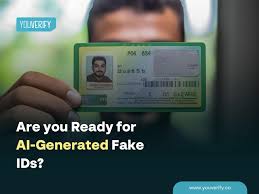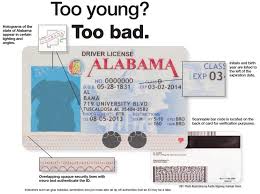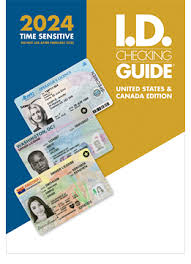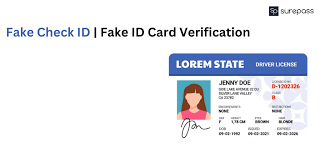fake ID benefits
Outline:
1. Introduction
- Overview of Fake IDs: A brief look at the traditional perspective on fake IDs and their recent evolution.
- Modern Use Cases: How fake IDs are diversifying for new, legitimate uses.
- Main Purpose: Exploring the real, practical benefits that make fake IDs attractive today.
2. Product Features
- Customization Options: How fake IDs can be tailored to specific needs, from novelty to privacy protection.
- High-Quality Design & Technology: Incorporation of security features, realistic holograms, scannable barcodes, etc.
- Durability & Authenticity: Emphasis on using premium materials and designs to withstand regular use.
- Accessibility and Convenience: The flexibility fake IDs offer for various applications without formal documentation.
- Privacy Protection: How certain users leverage fake IDs to protect their personal information.
3. Market Analysis
- Demand Drivers: Factors contributing to the popularity of fake IDs for non-traditional uses.
- Key Markets: Analysis of regions and demographics where fake IDs are most commonly used.
- Competitor Landscape: Overview of legitimate ID providers, comparison with novelty ID makers, etc.
- Regulatory Environment: How regulations affect the fake ID market and encourage innovation for safe use.
4. Target Audience
- Who Uses Fake IDs Today?
- Young Adults: Exploring the appeal to students and travelers.
- Freelancers and Remote Workers: How they use fake IDs for online privacy.
- Travel Enthusiasts: Using alternative IDs for safer travels.
- Professionals Seeking Privacy: Certain professionals may choose fake IDs to protect their identity.
- Audience Pain Points: Privacy concerns, access limitations, and practicality as primary motivators.
5. Product Benefits
- Enhanced Privacy and Security: Fake IDs as a tool for personal safety in online/offline environments.
- Cost-Effectiveness: Comparison of fake IDs with traditional ID procurement costs.
- Versatility and Accessibility: The multiple uses of fake IDs, including novelty and practical applications.
- Quick Access: How fake IDs simplify certain processes, like gaining entry to restricted areas for specific demographics.
6. Practical Applications
- Travel and Recreation: How fake IDs are used as backup documents for non-essential travel.
- Online Platforms and Social Media: Creating alternate accounts without compromising personal details.
- Exclusive Events and Gatherings: Entry into events that require identification without providing real information.
- Education and Academia: Use in academic settings, student groups, and international educational programs.
7. Safety and Ethical Considerations
- Legal Boundaries: Overview of safe, legal uses for fake IDs and avoiding misuse.
- Ethical Use Cases: Encouraging responsible use and informing consumers about appropriate applications.
- Risk Mitigation: How to avoid misuse and understand legal boundaries.
8. Conclusion
- Summary of Key Points: Reiterate benefits and ethical, safe use.
- Future Outlook: Brief look at how fake ID technology might evolve.
- Final Thoughts: Responsible consumerism and embracing new ID alternatives for practical use.
Sample Content (1,000 Words to Get Started):
Introduction: Fake IDs in the Modern World
In a world where digital presence often rivals physical identity, the role of identification has evolved beyond government-issued IDs. Fake IDs, once considered mere tools for age misrepresentation, now offer unique, legitimate benefits that address a variety of modern needs. From privacy protection to accessible solutions in restricted scenarios, these identification tools appeal to users seeking flexibility and security.
Product Features
Fake IDs today are crafted with sophisticated designs and security elements that go beyond simple print jobs. With scannable barcodes, realistic holograms, and even magnetic strips, quality fake IDs are often indistinguishable from government-issued documents. Here’s a closer look at their standout features:
Customization Options
Modern fake ID providers offer a wide range of customization options to suit individual needs. Users can select different designs, state templates, and even include personalized details. This flexibility allows for a user-centric approach, enabling each ID to reflect the specific needs of the user.High-Quality Design and Technology
Advancements in technology have brought about fake IDs that are nearly identical to official documents. For many, this provides not only a realistic look but a high level of functionality that aids in personal and professional tasks, ranging from online privacy to novelty purposes.Durability and Authenticity
Top-tier fake IDs are made using durable materials that stand the test of time, making them ideal for regular use. High-quality PVC, realistic fonts, and security seals further enhance their appeal for users who prioritize authenticity and dependability.Privacy Protection
For individuals concerned about data privacy, fake IDs offer an alternative way to share identification details without compromising personal information. This is especially beneficial for freelancers, remote workers, and social media users looking to maintain a degree of anonymity online.
Market Analysis: Why the Demand for Fake IDs Is Rising
The current market for fake IDs is driven by a convergence of trends and technological advancements. Privacy concerns, digital security needs, and the growing online presence have all contributed to the interest in alternative forms of identification.
Demand Drivers
Increased online activity and data privacy concerns mean more individuals are looking for ways to protect their identities. Fake IDs allow users to participate in certain activities without revealing sensitive information, a feature that aligns well with today’s privacy-conscious consumer.Key Markets
Although traditionally popular in North America, the fake ID market has seen expansion across regions including Europe, Asia, and Australia. Young adults, frequent travelers, and digital freelancers are some of the main demographics fueling demand for these products.Competitor Landscape
Alongside traditional ID vendors, a variety of competitors now produce novelty and alternative IDs for specific needs. These range from authorized service providers to digital identity apps, making the market increasingly competitive.Regulatory Environment
The legal landscape around fake IDs is complex. Many countries enforce strict penalties for misuse, but regulatory frameworks vary widely, allowing for potential innovation. Some providers focus exclusively on novelty and non-functional IDs, while others cater to more practical, privacy-driven use cases.
Target Audience: Who Uses Fake IDs?
The audience for fake IDs has evolved. Here are the key groups drawn to the unique advantages of these products:
Young Adults
College students and young professionals often seek fake IDs as an affordable, temporary solution. Many use them for age verification in social settings or to access resources that require ID verification.Freelancers and Remote Workers
Individuals who work remotely or freelance online find value in fake IDs as they navigate privacy concerns in the digital workspace. Alternative IDs help them manage online interactions without disclosing real personal details, a key concern in today’s online economy.Travel Enthusiasts
For travelers, fake IDs can serve as backup identification, especially for non-essential activities where primary ID documentation isn’t required. They are a secure option for those looking to protect their main ID from loss or theft while traveling.
 Fake Driver’s License Kansas
Fake Driver’s License Kansas
 underage ID use
underage ID use
 Delaware Fake ID
Delaware Fake ID
 fake ID benefits
fake ID benefits